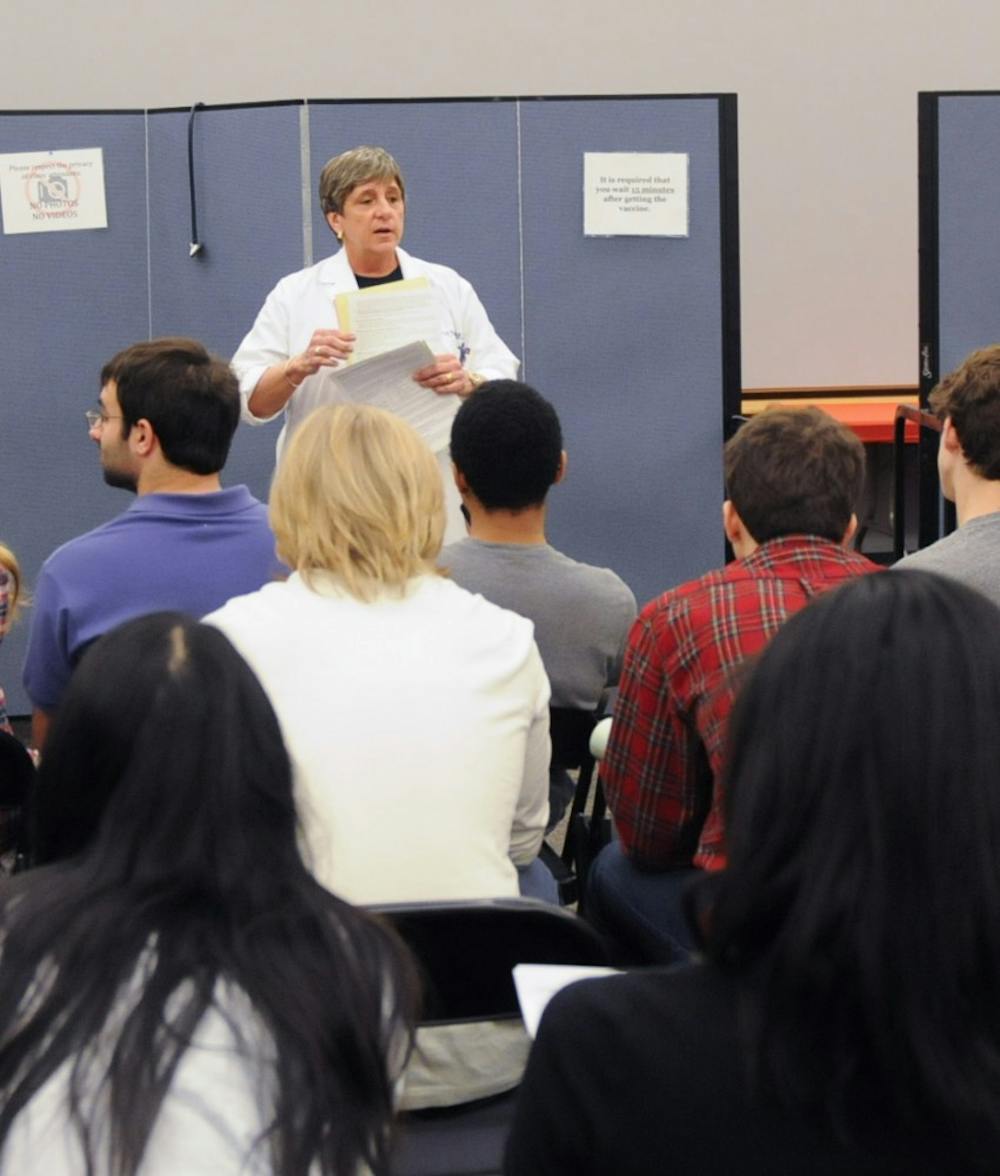4,709 students received the second dose of the meningitis vaccine, according to University Spokesperson Martin Mbugua. Approximately 81 percent of the student body has received both doses, the maximum immunity currently available against meningitis, as of Feb. 20.
Ninety-one percent of the student body received the first dose of the vaccine in December.
The second administration of the vaccine began on Monday and concluded on Thursday. An additional 305 students received the dose last month. The categories of people eligible for the vaccine remained the same as the categories of people eligible for the first vaccine clinic, with only undergraduate students, graduate students living in dormitories and faculty members with certain health conditions able to be vaccinated.
A small number of students were seen for symptoms of adverse effects after receiving vaccine, Mbugua said.
Students who had not received the first dose in December were able to receive the first dose this week. Two-hundred-and-three additional students received the first dose this week, amounting to 3.5 percent of the student body. In total, 97 of undergraduate students have now received the first dose, Mbugua said. Overall, 5,471 individuals have received the first dose.A total of 190 first doses were administered this week, Mbugua said.
Approximately 91 percent of the eligible student body, or 5,268 students, had received the first dose of vaccination by the end of the University’s week-long vaccination campaign in December.
In a previous informational panel on meningitis sponsored by the University in conjunction with the Centers for Disease Control and Prevention, Head of Meningitis and Preventable Disease Branch of the CDC Tom Clark justified getting the second dose by saying, “you get good responses after the first dose but antibody levels drop pretty quickly after the first few months.”
The Student Health Advisory Board, a student-run organization committed to ensuring health care at the University, has been working to actively publicize the second vaccination clinic, urging students to seek the vaccine.
Jonathan Esposito ’15, a student member of SHAB and a producer of the student video “Princeton Against Meningitis Part Two,” has been involved in making sure students were aware of the importance of receiving the vaccine.
“At one of our first meetings of the semester, our new SHAB members came in and said that a lot of their friends didn’t know when the second vaccination was taking place,” Esposito said. “The university did a lot to publicize the first one but not much the second one.”
He added that a lot of students were hesitant to get the second dose of the vaccine because of the “menge arm.” “Menge arm” refers to the pain in their arm recipients frequently feel in the days following vaccination.
SHAB then began developing posters and videos with the theme “halfway won’t do it” as a result. Posters that depict half a condom and half a $50 bill with the headline “Half Isn’t Useful” were scattered all across campus, and SHAB members have also utilized social media and listservs to spread the word on the second dose of vaccines.

“It’s unfortunate that [meningitis] came to Princeton, and we want to do everything in our power so that everyone knows important it is to get vaccinated,” Esposito said.
With the end to the second administration of the vaccine, Princeton concluded its two-part vaccination campaign, although students who have only received the first dose during this vaccination period will have the opportunity to acquire the second dose in the future. However, this week’s vaccinations do not mark the end to all vaccination campaigns against meningitis serotype B on college campuses.
Health officials from the University of California, Santa Barbara, visited the University this Tuesday to observe the vaccination clinic, compare plans and exchange ideas as UCSB prepares to hold its own clinic next week, Mbugua said. UCSB, which has had four confirmed cases, has recently announced their own vaccination campaign, scheduled to begin on Feb. 24. The strain found at UCSB is not identical to that observed in the eight cases at Princeton.
The vaccine, which is not currently approved by the Food and Drug Administration in the United States, has been offered exclusively to the University and UCSB as part of an emergency response to the eight reported cases at the University and four at UCSB. The last reported meningitis case came in December.
Clarification: The number of individuals who have received the vaccine has been updated to include those who received the second dose earlier this year. In addition, the language referring to adverse effects due to the vaccine has been updated for clarity.








